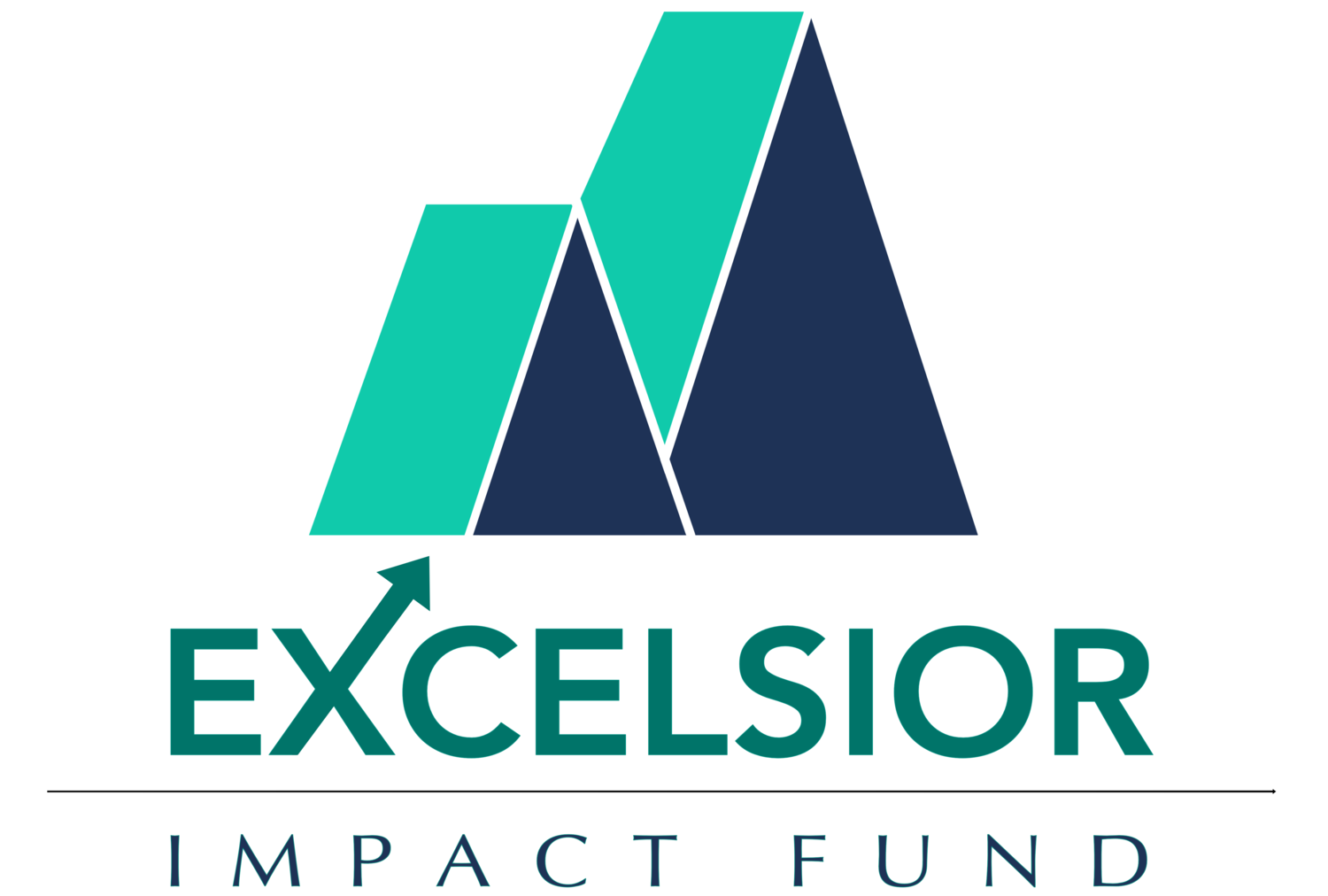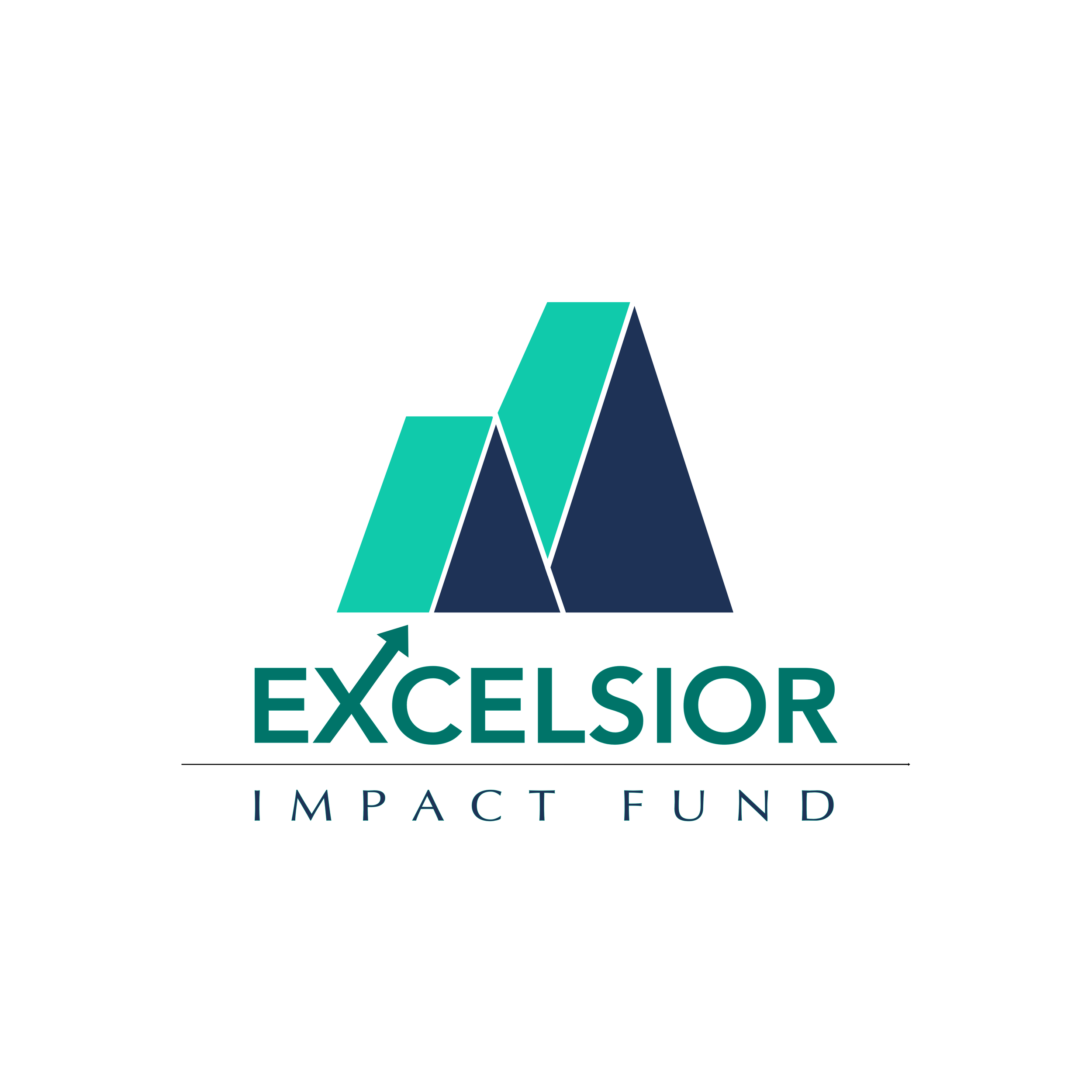
About Excelsior Impact Fund
Purpose
At the Excelsior Impact Fund, we invest to create the world we want for future generations—an equitable one that lives in harmony with nature, respects biodiversity, and provides the opportunity for everyone to have a rich and fulfilled life. The Excelsior Impact Fund represents the pooled assets of multiple families that invests across the returns continuum to maximize long-term impact toward a sustainable and just world. These include commercial rate investments, financially subcommercial investments with outsized impact, and grants to non-profits that provide impact well beyond the direct donation.
There is a focus on climate solutions (and overall environmental sustainability), safe water and sanitation, and opportunity equity. The fund also invests in a healthy US democracy and in the effective giving or strategic funding infrastructure, which helps further these and other impact goals. The fund recognizes, though, that the world is interconnected so will invest in other areas if the combination of impact, return, and risk is compelling.
Most of the investing is done through a donor-advised fund at Impact Assets. We treat this like a foundation targeting a 5% payout in grants, although, we accelerate the payout in more urgent times. We are a member of Toniic’s T100 and have pledged 100% of the assets of the donor-advised fund to be invested for impact.
Journey and Philosophy
The Beginning: The fund grew out of discussions among a group of friends from across the political spectrum who met regularly to discuss the issues of the day. The group boldly called itself “the Junto” fashioning itself after Ben Franklin’s group of the same name, whose discussions led to the first lending library, the first fire department and the postal system.
Commercial Rate Impact Investing. The fund formally started in 2014 seeking out commercial rate return impact investments across asset classes. If you can get commercial rate returns and have a positive impact on the world, then why not? This seems especially appropriate for money in the donor-advised fund that has already been earmarked for the public good. Our experience has been positive. The public debt and equity funds have mostly tracked or outperformed their indices; and the private investments overall have performed according to expectation. In addition, many of the private impact investments are not correlated with the major indices so provide attractive portfolio diversification.
Evolution to Holistic Approach. We questioned the sole focus on commercial rate investments, though, when offered an opportunity to invest in WaterEquity’s first investment fund of $11M offering a return of 1-2% over the seven-year fund life while delivering safe water and sanitation to a million people. It was not a commercial rate investment, yet if the reduced return from the commercial rate were a grant, we would gladly make it to get that kind of impact. More importantly, this was a key step in Water.org’s (WaterEquity’s sister non-profit) strategy to show the attractiveness of the lending sector to drive the vast amounts of capital necessary to meaningfully address the problem.
With this subcommercial rate investment, we began our holistic approach of investing across the returns continuum to reach the impact goals of the fund. This donor story discusses Water.org/WaterEquity as an example of how philanthropy, subcommercial investments, and commercial investments can work together to catalyze systemic change to help solve at scale a major global problem---here changing the financial system to make affordable loans available to bring safe water and sanitation to tens of millions of people with a line of sight on many more.
Imputed Grants. When making a subcommercial investment, we consider the reduced financial return to be an imputed grant and include this in our grant budget. As with WaterEquity, we would only accept the lower return if we would be willing to make a grant to get that kind of impact.
The Future. We recognize that subcommercial impact investments are undercapitalized and view this as an impact opportunity. Going forward, we also expect to reduce our public investments where capital is plenty, replacing them with higher impact private investments which are relatively undercapitalized. We will do this over time to diversify the vintage year of the illiquid private impact investments to provide liquidity over time and to reduce risk.
Hope to Inspire. We share our approach with the hope that others will learn that you don’t have to be a large foundation to have outsized impact. We are able to access most of the investments at much lower minimums by investing through Impact Assets and through our impact financial advisor, Align Impact. We hope to inspire others to action and to find collaborators to amplify our combined impact.
The Name
Excelsior is a Latin word meaning “ever upward’ or “still higher” and reflects the view that no matter what humanity has achieved we can continue to improve and take our quality of life ever higher. Excelsior was popularized by Stan Lee, the famed creative director of Marvel Comics, who used it as a sign-off for his columns. Our reading tastes have evolved somewhat over time.
The Team
Tony Stayner
Tony is the founder and has been the Managing Director of the Excelsior Impact Fund since its inception in 2014. He had a fulfilling career as a software executive in Silicon Valley before turning his focus to giving back. He believes that using the power of markets to help solve our most pressing problems is vastly underutilized and is fascinated by the intersection between business and philanthropy. He is a member of Forward Global, the TONIIC T100 impact investor network, and a long time partner and impact investing Investment Committee member at SV2. In 2019, Tony was honored to receive the Laura Arrillaga Andreessen Social Impact Award recognizing his impact investing leadership.
Tony has mentored social entrepreneurs through organizations such as Santa Clara University’s Miller Center for Social Entrepreneurship Accelerator, through UC Berkeley’s Big Ideas program, and Stanford’s SEED program. He is also a Board Member of Water.org, who is using microfinance to catalyze change to access of safe water and sanitation services, and of Stroke Onward, who is redefining the standard of care for stroke survivors to include emotional support they need to rebuild their identities for a rewarding life. He is also on the California Leadership Council for The Nature Conservancy.
Tony’s MBA is from Stanford’s Graduate School of Business and JD is from the University of California at Berkeley’s School of Law. He attended Harvard Law School during his third year of law school on an exchange program, where he taught an environmental economics course to Harvard College undergraduates. Tony graduated Phi Beta Kappa with an A. B. in Economics and Mathematics from the University of California at Davis. He is a Stanford University Distinguished Careers Institute Fellow for 2025-26.
Jenn Kenning
Jenn is a trailblazer, collaborator and change-maker who has quickly risen to become one of the most recognized voices in impact investing. In 2014 Jenn co-founded Align, an independent fiduciary and impact specialist that works alongside financial advisors, institutions, foundations and directly with individual clients and family offices, helping integrate impact strategies and investments into the broader wealth management strategy. Align Impact is the impact financial advisor for the Excelsior Impact Fund.
A frequent speaker, moderator and guest lecturer, Jenn is committed to building the impact investing ecosystem while leading Align. Jenn was named on the “40 under 40” list by Investment News in 2014, selected for Private Asset Management’s “50 Most Influential Women in Private Wealth” in 2016, and chosen as Investment News Icon and Innovator in 2017.
Jenn began her career in 2002 as a wealth manager at Aspiriant where she served also on the Board of Directions and was a partner of the firm, and left to launch Align.
Rahima Jamal
Rahima serves as an Impact Advisor at Align Impact, working closely with individuals, families, and foundations to align their investment portfolio with their values.
Prior to joining Align, Rahima served as an Associate within the Real Estate Legal & Compliance team at Blackstone, where she led investment compliance operations across the Real Estate group. During her time at Blackstone, Rahima served as a mentor for the Future Women's Leadership Program as well as a representative to the Real Estate group's Diversity & Inclusion task force. While at Blackstone, Rahima learned first-hand the power of capital markets, but sought to leverage it as a tool to create positive change. She joined Align Impact in 2021 as a member of the Client Advisory team.
Rahima graduated Magna Cum Laude from the University of Pennsylvania with a degree in Philosophy, Politics & Economics and minors in Marketing and Consumer Psychology. She recently moved to Miami, Florida after spending many years in New York City.
Grace Stayner
Grace Stayner has a diverse background that spans Healthcare, Product Management, and Social Impact, where she focuses on leveraging cutting-edge technology and innovative business strategies to fund and foster health equity initiatives. She aims to bridge gaps in access and quality of care through strategic investments. She is thrilled to manage Health Equity investments for Excelsior Impact Fund.
Grace is a partner at Forward Global and SV2, where she spends her time in the Health Equity Interest Group and serving on the due diligence committee for Health Tech Investments. Grace received her B.A. in Human Biology from Stanford University and is now attending the Stanford Graduate School of Business in the MBA class of 2026.






